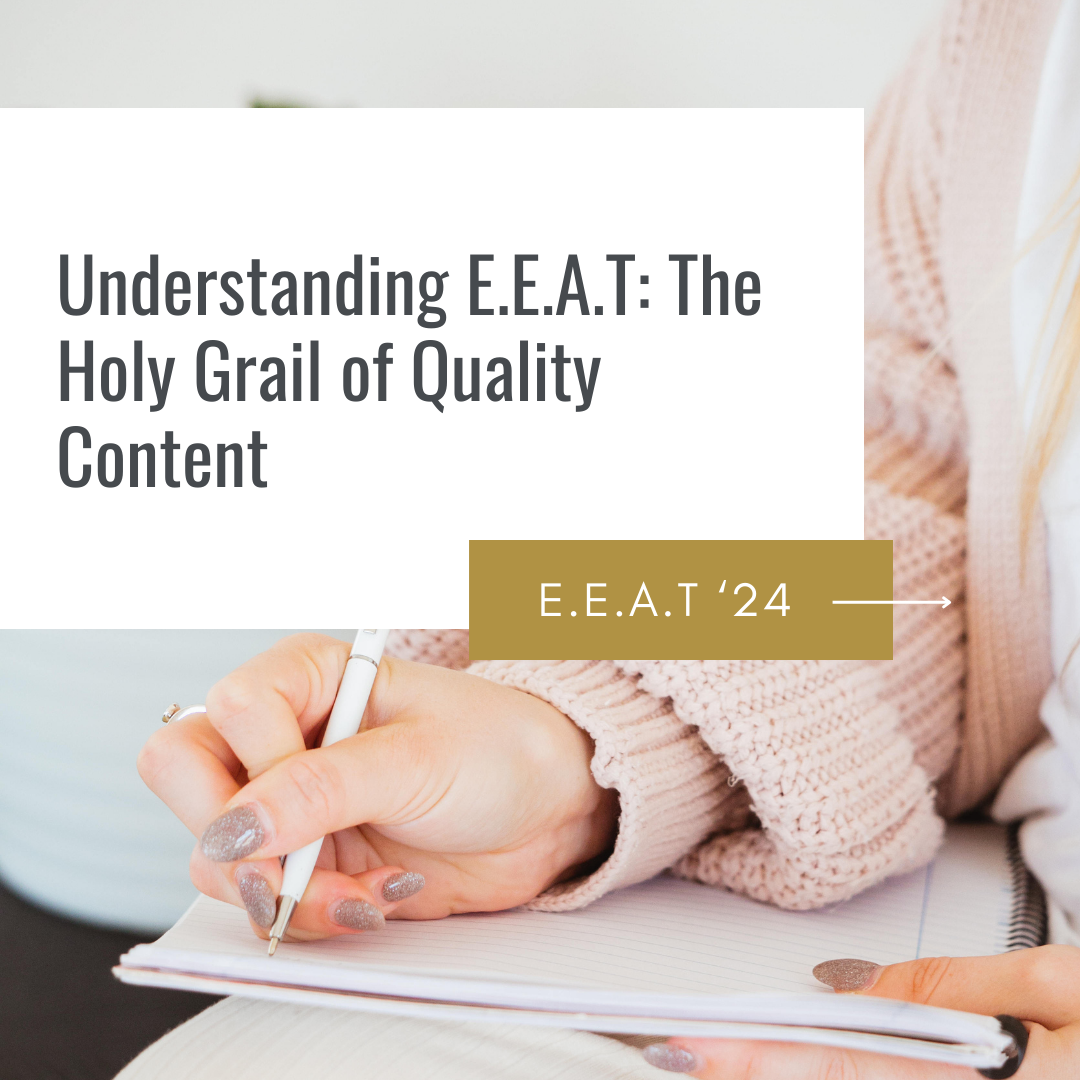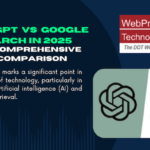In the ever-evolving landscape of search engine optimization, the landscape of "good content" is constantly shifting. Google's algorithms, always striving to deliver the best results for users, have placed growing emphasis on three crucial factors: Expertise, Authoritativeness, and Trustworthiness (E.A.T.). But what does this mean for content creators in 2024, and how can you ensure your content not only ranks but delivers true value to your audience?
Understanding Experience, Expertise, Authoritativeness, and Trustworthiness in 2024 - E.E.A.T
- Experience: Many creators are familiar with the concept of E-A-T, which is used in how Google evaluates to check if the search ranking systems are providing helpful, relevant information. Now to better assess our results, E-A-T has gained an additional E: experience.
- Expertise: Is your content written by someone with demonstrable knowledge and experience in the subject matter? Can you showcase credentials, affiliations, or a proven track record?
Google says, there are some situations where really what you value most is content produced by someone who has first-hand, life experience on the topic at hand.
For example, if you're looking for information on how to correctly fill out your tax returns, that's probably a situation where you want to see content produced by an expert in the field of accounting. But if you're looking for reviews of a tax preparation software, you might be looking for a different kind of information—maybe it's a forum discussion from people who have experience with different services.
- Authoritativeness: Does your content have the backing of recognized sources, credible institutions, or respected voices in the field? Does it cite authoritative sources accurately and transparently?
- Trustworthiness: Does your content demonstrate transparency, impartiality, and a genuine desire to inform and educate your audience? Can you avoid bias, misleading claims, and manipulative tactics?
Building Your E.E.A.T. - Practical Tips for Content Creators
- Know your niche: Become an expert in your chosen field. Stay up-to-date on the latest trends, research extensively, and actively engage with industry leaders.
- Showcase your credentials: Don't be shy about highlighting your expertise. If you have relevant qualifications, certifications, or experience, mention them in your author bio or within your content.
- Collaborate with established voices: Partner with other experts in your field for interviews, guest posts, or co-created content. This association with established voices can boost your perceived authoritativeness.
- Source strategically: Cite high-quality, relevant sources when making claims or presenting data. Link to reputable websites, studies, and recognized institutions.
- Transparency is key: Be upfront about any potential conflicts of interest, disclose affiliations, and acknowledge limitations in your knowledge.
- Focus on user-centricity: Write for your audience, not for search engines. Deliver clear, concise, and valuable information that addresses their needs and interests.
- Authenticity matters: Inject your personality and voice into your writing. Build a connection with your readers and establish yourself as a relatable, trustworthy source.
- Fact-check like a hawk: Double-check information, verify statistics, and ensure your content is accurate and well-researched.
- Embrace ethical writing: Avoid clickbait tactics, misleading claims, and sensationalized content. Focus on providing genuine value and informative insights.
- Engage with your readers: Respond to comments, answer questions, and participate in conversations. Building a community fosters trust and establishes you as a reliable source.
Beyond the Algorithm: The Human-Centric Value of E.E.A.T.
While E.E.A.T. may initially sound like a SEO checklist, it's important to remember its core purpose: to elevate the quality of information available online and offer users trust-worthy resources. By prioritizing expertise, authoritativeness, and trustworthiness, you create content that not only ranks higher but also educates, informs, and empowers your audience.
- Combatting misinformation: In an age of information overload, E.E.A.T. becomes a crucial filter, helping users discern reliable sources from misleading content.
- Building trust and loyalty: When readers know they can depend on your content, they're more likely to engage with your brand, subscribe to your newsletter, and become loyal followers.
- Strengthening brand reputation: E.E.A.T. translates to brand authority and credibility. Users associate your content with quality and expertise, fostering trust and recognition for your brand.
E.E.A.T. is not a destination, but a journey. It's a continuous process of improvement, a commitment to self-education, and a dedication to delivering the best possible content to your audience. By embracing these principles and integrating them into your content creation process, you can not only rank higher in search results but also elevate the value you offer to your readers, establishing yourself as a trusted and authoritative voice in your field. So, go forth, build your E.E.A.T., and create content that makes a difference.
Remember, in the end, it's not just about satisfying algorithms; it's about connecting with humans and making a positive impact on the world through the power of quality content.
Updated search rater guidelines released underscore the importance of content created to be original and helpful for people, and explaining that helpful information can come in a variety of different formats and from a range of sources.
Google also has clearly mentioned:
These guidelines are what are used by our search raters to help evaluate the performance of our various search ranking systems, and they don't directly influence ranking. They can also be useful to creators seeking to understand how to self-assess their own content to be successful in Google Search.
January 8, 2024






